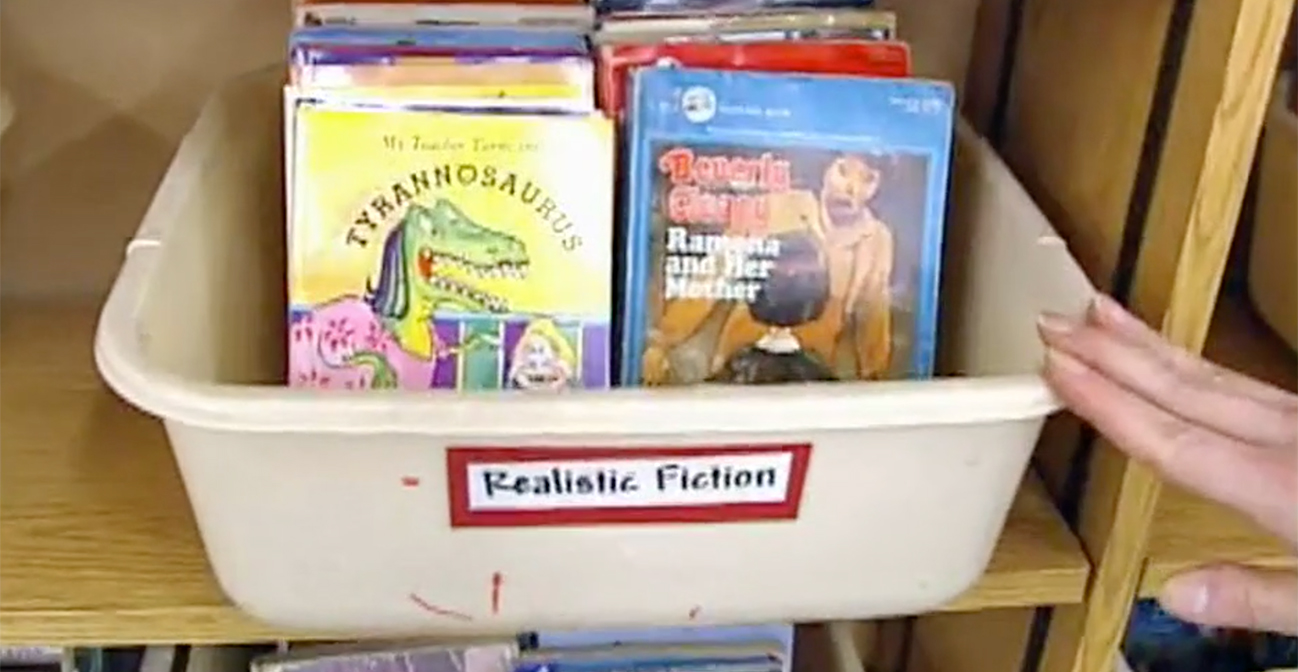Students in the intermediate grades continue to develop as fluent readers, using specific strategies for reading and understanding new words. How can teachers support their students’ development of fluency, vocabulary, and decoding strategies? What instructional practices promote fluency and word study? In this session, literacy expert Richard Allington discusses the importance of fluent reading, vocabulary knowledge, and word analysis skills in effective, interactive, and engaged reading.
Private: Teaching Reading: 3-5 Workshop
Fluency and Word Study
This session focuses on how students in the middle grades develop vocabulary and reading fluency. Literacy expert Richard Allington discusses specific teaching strategies that help build fluency and vocabulary, illustrated by classroom examples.

Learning Goals
At the end of this session, you will better understand how to:
- provide opportunities to practice fluent reading
- model and demonstrate fluent reading for your students
- plan instruction that allows all students to engage in high-success reading
- select and teach vocabulary to enhance comprehension
- instruct and support students in decoding longer, unfamiliar words
“We want to make sure that readers are engaged in lots of high-success reading and that we support them by modeling and demonstrating how good readers think while they read. This includes how they pay attention to words, how they think about pronunciation, and how they notice those little things writers do that tickle us”
Richard Allington
Professor of Reading
University of Tennessee
Meet the Expert
 Richard Allington is professor of education at the University of Tennessee. Previously he taught at the University of Florida, and chaired the Department of Reading at the University at Albany, SUNY. Professor Allington is president-elect of the International Reading Association and was recognized by the association for his work in the field of reading and learning disabilities. He also serves on the editorial boards of Reading Research Quarterly, Remedial and Special Education, Journal of Literacy Research, and other scholarly publications. Professor Allington is the author of more than 100 research articles and several books. His most recent book, Big Brother and the National Reading Curriculum: How Ideology Trumped Evidence, critically examines the influence of federal education policy on reading instruction and the teachers who provide it.
Richard Allington is professor of education at the University of Tennessee. Previously he taught at the University of Florida, and chaired the Department of Reading at the University at Albany, SUNY. Professor Allington is president-elect of the International Reading Association and was recognized by the association for his work in the field of reading and learning disabilities. He also serves on the editorial boards of Reading Research Quarterly, Remedial and Special Education, Journal of Literacy Research, and other scholarly publications. Professor Allington is the author of more than 100 research articles and several books. His most recent book, Big Brother and the National Reading Curriculum: How Ideology Trumped Evidence, critically examines the influence of federal education policy on reading instruction and the teachers who provide it.
Related Resources
Print Resources
Allington, R. L. What Really Matters for Struggling Readers. New York: Longman, 2001.
Beck, I. L., M. G. McKeown, and L. Kucan. Bringing Words to Life: Robust Vocabulary Instruction. New York: Guilford Press, 2002.
Blachowicz, C. L. Z., and P. J. Fisher. “Best Practices in Vocabulary Instruction: What Effective Teachers Do.” In Best Practices in Literacy Instruction, edited by L. M. Morrow, L. B. Gambrell, and M. Pressley, 87-110. New York: Guilford Press, 2003.
Bloodgood, J. W., and L. C. Pacifici. “Bringing Word Study to Intermediate Classrooms.” The Reading Teacher 58, no. 3 (Nov. 2004): 250-263.
Hudson, R. F., H. B. Lane, and P. C. Pullen. “Reading Fluency Assessment and Instruction: What, Why, and How?” The Reading Teacher 58, no. 8 (May 2005): 702-714.
Kuhn, M. “Helping Students Become Accurate, Expressive Readers: Fluency Instruction for Small Groups.” The Reading Teacher 58, no. 4 (Dec. 2004/Jan. 2005): 338-344.
Scott, J. A. “Scaffolding Vocabulary Learning.” In Teaching All the Children, edited by D. Lapp, C. C. Block, E. J. Cooper, J. Flood, N. Roser, and J. V. Tinajero, 275-293. New York: Guilford Press, 2004.
Worthy, J. and K. Broaddus. “Fluency Beyond the Primary Grades: From Group Performance to Silent, Independent Reading.” The Reading Teacher 55, no. 4 (Dec. 2002): 334-343.
![]()
Web Resources
Readers’ Theater
This site provides ideas and scripts for readers’ theater to practice and to help students develop reading fluency.
Literacy Connections
This site provides a comprehensive list of research-based strategies and teacher resources for word identification and decoding instruction.
Scholastic Instructor
The Scholastic site provides instructional resources that promote reading fluency.
Assignments
If you are taking this workshop for credit or professional development, submit the following assignments for Session 2: Fluency and Word Study.
1. Examine the Literature
In this assignment, you will read two articles on fluency and word study, and then complete the Examine the Literature Response Chart.
![]()
2. Teaching Word Parts
In this activity, you will select words that contain a similar word pattern and plan a lesson to teach these words, using the Lesson Plan Chart.
![]()
3. Developing Vocabulary
In this activity, you will choose 8 to 10 vocabulary words from a selection students are going to read and then develop two activities to help students understand and use these words appropriately.
![]()
4. What Did You Learn?
In this activity, you will write a summary of the ideas and strategies you explored in this session.
![]()
5. Create a Literacy Practices Portfolio
If you are taking this workshop for credit, you will continue constructing your portfolio of instructional practices.

